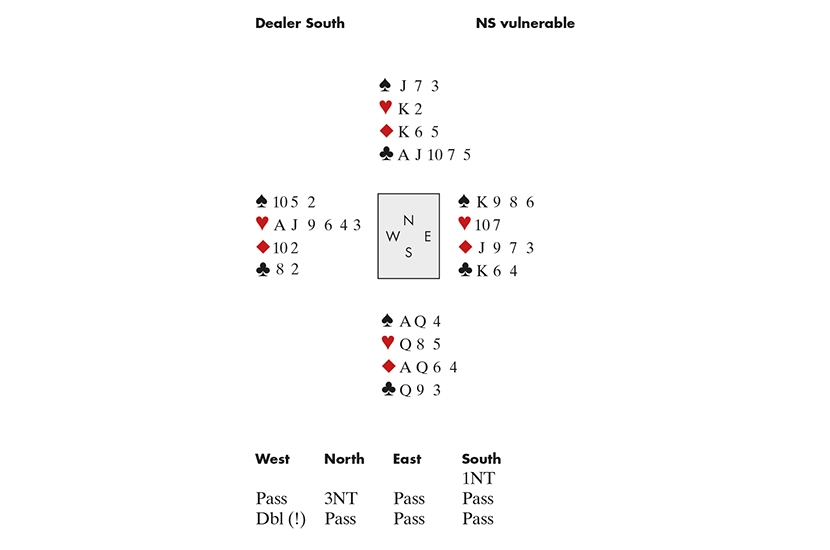To be a killer bridge player, you need to be aggressive. Many of us are hampered by timidity, especially when it comes to making penalty doubles. All too often, we ignore our instinct to reach for the red card: we dwell on how foolish we’ll look if we’re wrong, and how cross our partner will be. But as Zia Mahmood says: ‘If every contract you double goes down, you’re not doubling enough.’
Zia routinely doubles auctions where the opponents have bid hesitatingly to game. As he sees it, if they’ve both limited their hands, you’re in with a good chance. Moreover, by upping the ante, the added pressure on declarer may cloud his thinking. This hand from a recent rubber bridge game seems to prove his point. West made a crazy gambling double (had he been drinking?), but it did manage to completely stupefy South, who is normally an excellent declarer:
West led the ♥6. Declarer rose with the ♥K, came to hand with a diamond and took the club finesse (West surely had the ♣K for his double!). Back came a heart and the contract was two down. Only afterwards did declarer see the right line: to play low from both hands at trick 1. The contract is always safe if West has the ♣K, if hearts are 4-4, or if East has ♥Ax or ♥Axx (duck the second round). You have no chance if West holds five hearts to the ♥A and East the ♣K. But if West has six hearts headed by the ace, playing low from both hands cuts the defender’s communication.





Comments